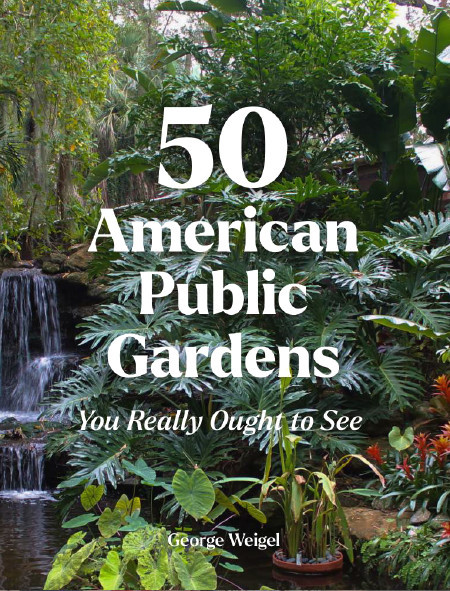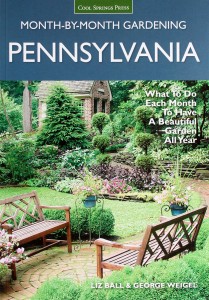10 of the Best Variegated Plants
July 10th, 2018
Plants with variegated leaves offer beauty all season, not just when flowers are blooming. That’s a main reason why you can count me as a variegation fan.
Although variegation can involve zones of assorted different colors, the most common blend is green and white.
Variegation isn’t terribly common in nature since the reason for the lack of solid green is lack of chlorophyll. That gives most variegated plants an inherent growing disadvantage.
However, gardeners tend to like variegated leaves, so breeders and growers are always on the lookout for mutations with variegated leaves. Propagating a mutation is where most variegated plants originated.
One other thing I’ve learned about variegated plants over the years is that even sun-preferring ones do best out of the afternoon shade. In drought or when getting blasted by the direct rays of a 2 p.m. summer sun, the white edges of variegated leaves tend to brown.
It’s even more important to keep shade-preferring variegated species out of too much sun.
For your spring plant-planning, here are 10 of my favorite variegated shrubs and perennials:
Brunnera ‘Silver Heart.’ One of the most beautiful of any plants, this shade perennial with the heart-shaped leaves is primarily silver with green veining. The blue forget-me-not-like spring flowers are a nice bonus. This variety is as vigorous and reliable of any variegated brunnera I’ve grown.
Variegated Japanese forest grass. My favorite grass, forest grass (a.k.a. Hakone grass) is a well behaved, arching 2-footer. The gold-variegated ‘Aureola’ variety is especially colorful in addition to its textural interest. It looks great with coleus. Forest grass is one of the few grasses that prefers being in shade.
Variegated liriope. Liriope or “lilyturf” looks like a foot-tall grass, but it’s actually a bladed perennial that produces flower spikes of purple in late summer. This version isn’t as indestructible and fast-growing as green-leafed liriope, but the foliage color makes it ornamental, not just utilitarian. Does best in shade to part shade.
Carex EverGold. Lots of variegated carexes (sedge grasses) are nice, but this one is an especially vibrant mix of gold and green striped blades. It’s durable, well behaved, and tolerant of shade.
Boxwood ‘Elegantissima.’ The white-edged leaves of this upright boxwood turn a meat-and-potatoes evergreen into a specimen. The cheery brightness of this one makes it a great candidate for flanking a shady front door, serving as a flower-bed focal point, or anchoring any important view.
Variegated weigela. The leaves of this arching, 6-foot shrub are edged white, giving it a bright, season-long appearance long after the pink, tubular, May flowers are done. Definitely give this one afternoon shade. ‘My Monet’ is a pretty dwarf version that adds a third shade – rosy-pink – to the leaf color.
Variegated Solomon’s seal. Under-used and under-known, this perennial grows 2 feet tall with bladed foliage that’s striped white and light green. It’s a colonizing plant that’s best used as a tall groundcover in the dry shade under trees, where it’s superb at lighting up a dark spot.
Hosta ‘June.’ So many hostas have variegated leaves, and I can’t say that any are bad. But I really like the soft blue/green variegation of ‘June.’ It’s a solid performer, a good size at only about a foot tall, and it adds lavender flowers to the package.
Lamium ‘White Nancy.’ Most lamiums have variegated leaves, but I like ‘White Nancy’ because the white banding of this shady groundcover is showier than most. Since it also blooms white, it’s a perfect combination for itself.
Tricolor sage. Usually sold in the herb section, this fuzzy-leafed and edible perennial is an ornamental star for its three-color leaves of green, purple and creamy-white. Use it to add interest in any edible garden or even paired with shrub roses or any pink-blooming shrub or flower.












